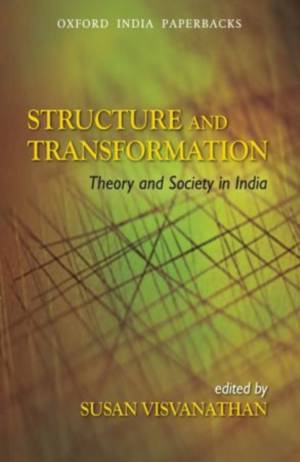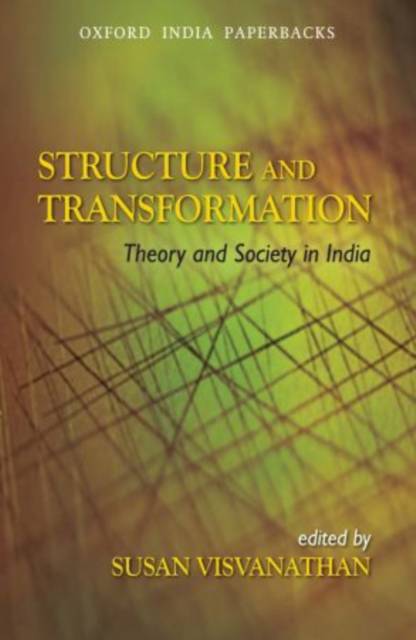
- Retrait gratuit dans votre magasin Club
- 7.000.000 titres dans notre catalogue
- Payer en toute sécurité
- Toujours un magasin près de chez vous
- Retrait gratuit dans votre magasin Club
- 7.000.0000 titres dans notre catalogue
- Payer en toute sécurité
- Toujours un magasin près de chez vous
Structure and Transformation
Theory and Society in India
Sheena (, Jamia Milia Islamia) Jain, Shobhita (, Indira Gandhi National Open University) Jain, Cherian (, ATW Nirman Pvt. Ltd) Joseph, Kuriakose (, University of Delhi) Mamkoottam, Tulsi (, University of Delhi) Patel, Satish (, Jawaharlal Nehru University) Saberwal, Jamia Milai Islamia) Savyasaachi (, Shiv (, Dhirubhai Ambani Institute of Information and Communicat, Susan (, Jawaharlal Nehru University) Visvanathan
34,95 €
+ 69 points
Description
This book examines the key debates, both theoretical and empirical, in the fields of urbanization, industrialization and stratification in India. The essays in the volume engage with the problems of typologies--tribal, peasant and industrial--in order to rethink the issues of modernity and tradition. The authors problematize a vast array of literature on tribal, peasant and industrial sociology, grappling with conceptual problems caused by the uncritical application of theories germinated in the West to the Indian context. The primary assumption of all the essays is that the conventional binary opposition between primitive and modern, and the evolutionary schema of viewing the world in terms of First, Second and Third Worlds is redundant to our times. Keeping this in mind, the book provides an essential framework for understanding globalization.
The contributors to the volume attempt to engage with the discursive and volatile aspects of the discipline of sociology, enlivening and re-invigorating old debates through an understanding of questions teachers and students put to each other in classroom situations, thus enabling students to read sociology in a new and refreshing way. In a new Preface, the editor contextualizes the issues of tribe, caste, gender and work in tribal, peasant and industrial societies in the current scenario.
It is essential reading for students and teachers of sociology and anthropology, bureaucrats, administrators, social workers, journalists and the interested lay reader.
The contributors to the volume attempt to engage with the discursive and volatile aspects of the discipline of sociology, enlivening and re-invigorating old debates through an understanding of questions teachers and students put to each other in classroom situations, thus enabling students to read sociology in a new and refreshing way. In a new Preface, the editor contextualizes the issues of tribe, caste, gender and work in tribal, peasant and industrial societies in the current scenario.
It is essential reading for students and teachers of sociology and anthropology, bureaucrats, administrators, social workers, journalists and the interested lay reader.
Spécifications
Parties prenantes
- Auteur(s) :
Sheena (, Jamia Milia Islamia) JainShobhita (, Indira Gandhi National Open University) JainCherian (, ATW Nirman Pvt. Ltd) JosephKuriakose (, University of Delhi) MamkoottamTulsi (, University of Delhi) PatelSatish (, Jawaharlal Nehru University) SaberwalJamia Milai Islamia) Savyasaachi (Shiv (, Dhirubhai Ambani Institute of Information and CommunicatSusan (, Jawaharlal Nehru University) Visvanathan
- Editeur:
Contenu
- Nombre de pages :
- 244
- Langue:
- Anglais
- Collection :
Caractéristiques
- EAN:
- 9780198062783
- Date de parution :
- 15-10-09
- Format:
- Livre broché
- Format numérique:
- Trade paperback (VS)
- Dimensions :
- 137 mm x 213 mm
- Poids :
- 272 g

Les avis
Nous publions uniquement les avis qui respectent les conditions requises. Consultez nos conditions pour les avis.






